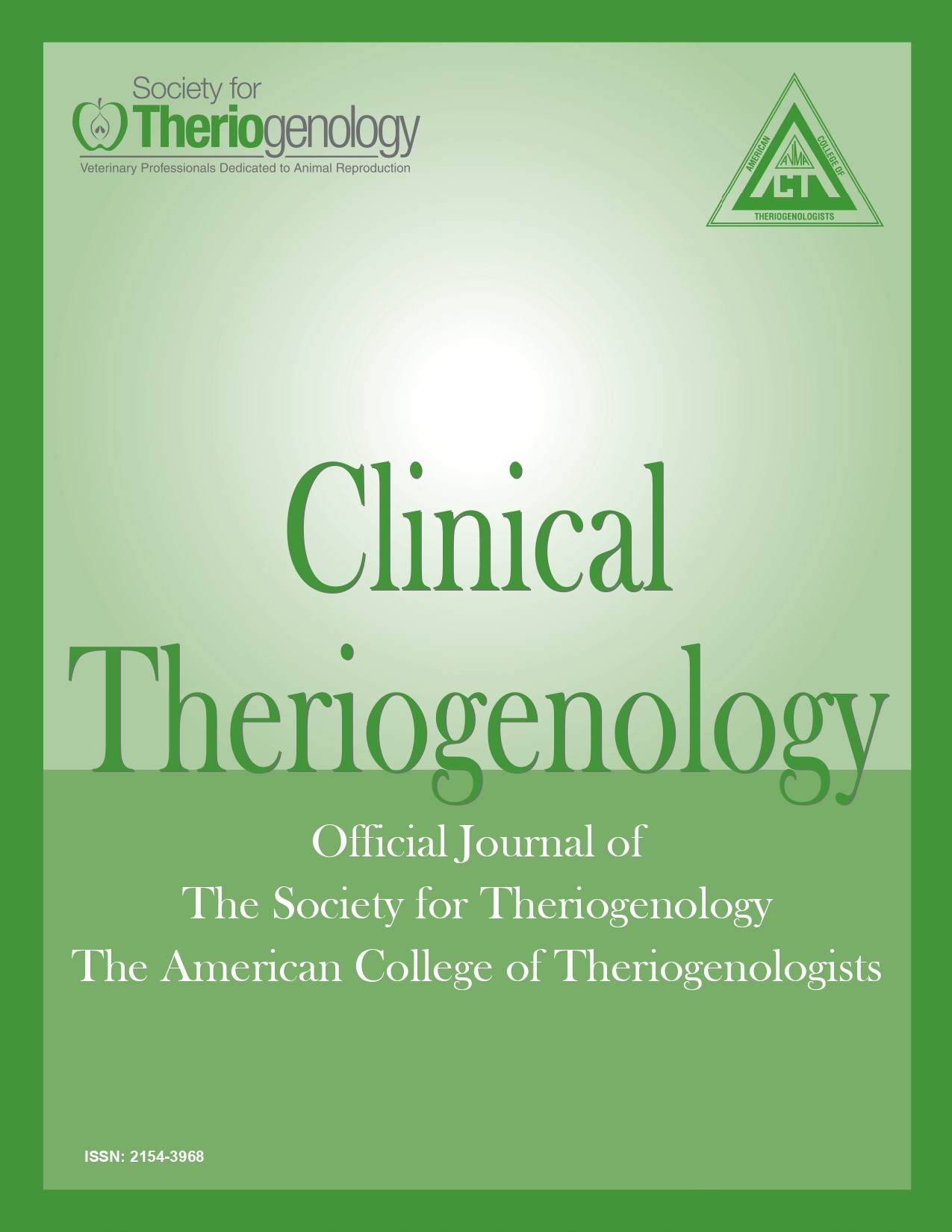Fetal and maternal immune response to ascending placentitis
Abstract
Ascending placentitis is a leading cause of abortion in mares, resulting in considerable economic wastage. Substantial work has been done on disease pathology and diagnostics, but minimal on the role of the fetal immune system in utero and its effect on fetal fluids. Therefore, objectives were to assess cytokine protein synthesis in fetal fluids and circulation after induction of disease and to determine fetal immune system responses to this reproductive tract inflammation. We hypothesized that induction of ascending placentitis lead to a significant increase in inflammatory markers in fetal fluid compartments and associated tissues. Ascending placentitis was induced via transcervical inoculation of Streptococcus equi subspecies zooepidemicus between 275 - 285 days of pregnancy, with tissues/fluids retrieved at euthanasia 4 - 6 days after inoculation. Cytokine protein concentrations were detected using Luminex xMap® Technology within fetal fluids (amniotic and allantoic) and serum (maternal and fetal) with experimentally induced placentitis (n = 5) and controls (n = 5). In addition, tissues from fetal (spleen, lung, liver and umbilicus) and maternal (spleen, lung, liver, amnion, chorioallantois and endometrium) origin were analyzed with qPCR for mRNA expression of inflammatory markers. Analysis was performed using SAS® 9.4 utilizing an unequal variances t test to evaluate comparisons between treatments for cytokine concentrations. Data on qPCR were analyzed utilizing a mixed general linear model, with treatment as a fixed effect. Of the 23 cytokines analyzed, only IL1ß, IL6, IL8, IL10, IP10, and GRO consistently exceeded limit of detection within fetal fluids. Of the 4 fluids studied, there was only an effect of inoculation on amniotic fluid, with increases in IL1ß, IL6, IL10, and GRO (p < 0.05) in the inoculated group. These cytokines were then investigated in reproductive and immune system tissues. In reproductive tissues, there were increased expressions of IL1ß and IL8 in endometrium and chorioallantois in addition to an increase in IL1ß and IL6 in amnion of inoculated mares. In tissues associated with the immune system, IL1ß was upregulated in the maternal spleen, whereas fetal spleens had increased expression of IL1ß, GRO, and IL6 after inoculation. Overall, fetal spleens had higher mRNA expression of the anti-inflammatory cytokine IL10 in comparison to both inoculated and control mares, whereas maternal spleen had heightened expression of IL1ß. There was an increase in expression of IL6 in fetal liver after induction of placentitis but no effect in maternal liver. No change was noted in the fetal lung. We inferred that inflammation caused by placentitis was fairly localized to the amniotic fluid, with minimal effect on the allantoic fluid or serum of inoculated animals. Although the maternal response to placentitis was proinflammatory, the fetus appeared to have a regulatory role in this inflammation. In addition, increases in amniotic IL6 and IL10 were intriguing; these are currently diagnostic predictors for microbial invasion of the amniotic cavity in humans and indicate that amniotic fluid sampling may be more predicative of placentitis than serum or allantoic biomarkers.
Downloads

This work is licensed under a Creative Commons Attribution-NonCommercial 4.0 International License.
Authors retain copyright of their work, with first publication rights granted to Clinical Theriogenology. Read more about copyright and licensing here.





